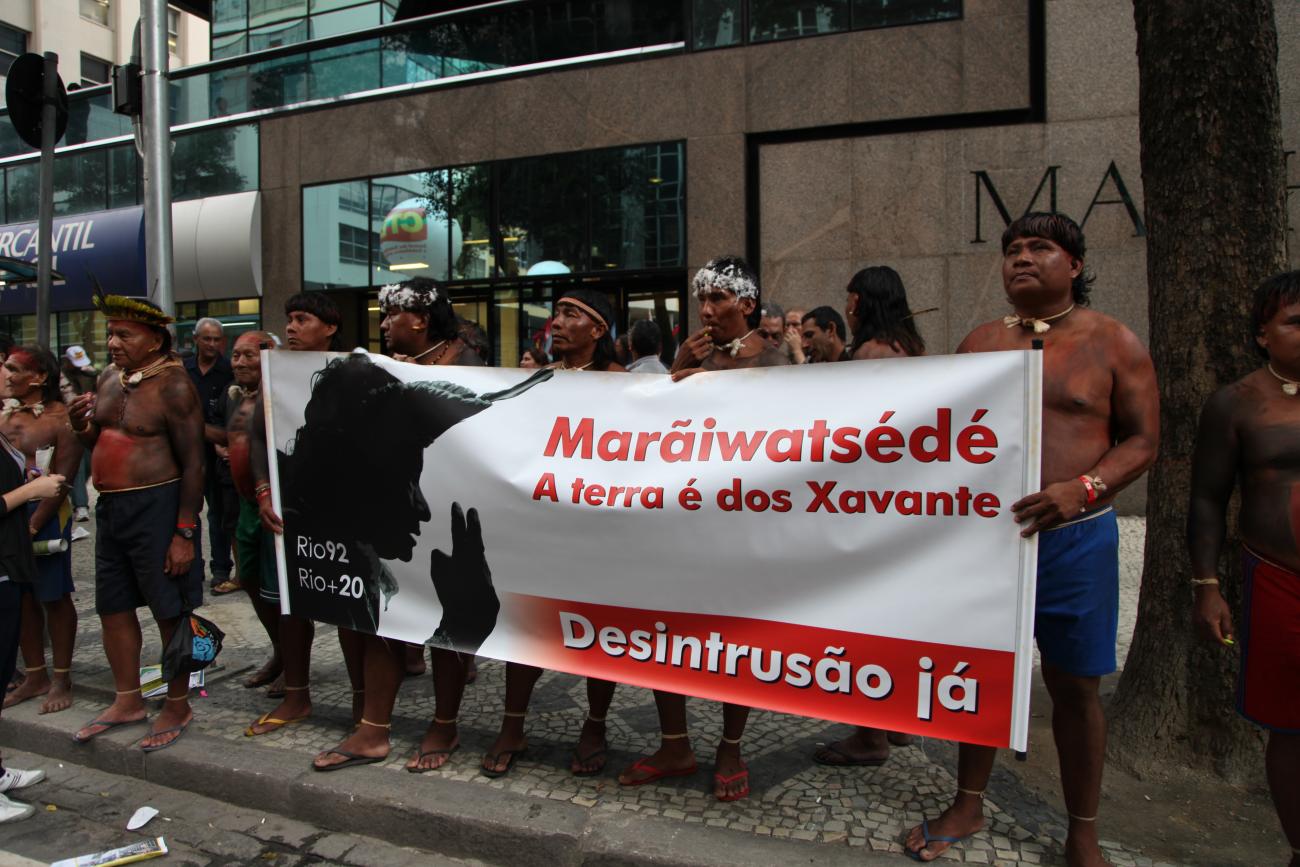
In September, the Regional Federal Court (TRF1) suspended a May 2012 ruling that mandated the removal of illegal occupants from the Marawãitsede Xavante Indigenous Reserve in Mato Grosso state, the epicenter of Brazil’s booming soy agroindustry. This reversal came just days before the October 1 deadline for beginning the removal of invaders occupying the area.
Both FUNAI (the Bureau of Indian Affairs) and the Federal Prosecutor have filed complaints. They now await replies from the court, which must respond within 30-days. Municipal elections will be held Sunday, October 7 and, because this situation is highly politicized, no response is expected until after the elections. A federal committee consisting of representatives from INCRA (National Institute for Colonization and Agrarian Reform), FUNAI, Federal Police, Highway Police, National Public Security Force, is meeting weekly to keep tabs on the situation. The army is on standby.
Much of the Marawãitsede area has been deforested by invaders and land-grabbing investors, including powerful politicians and large landowners, in large part as retaliation against the state’s decision to return these lands to Xavante. Because of this devastation, Xavante are unable to plant gardens and use natural resources to build houses. They dwell in slum-like conditions, suffering from hunger and lack of shelter. Food relief has been promised but will only arrive once the removal of invaders begins. The court’s recent decision to suspend the removal delays relief.
Once again, powerful local ranchers and politicians are preventing Xavante from living peacefully on lands that legally belong to them. They face remarkable hurdles in the Brazilian legal system where formidable agribusiness interests and political forces persist in tying up the case in the courts. Xavante continue to preserve in their efforts to remove illegal invaders from lands that are rightfully theirs.
Read more: Ranchers Arm Land Invaders to Prevent Xavante from Recouping Lands in Brazil


